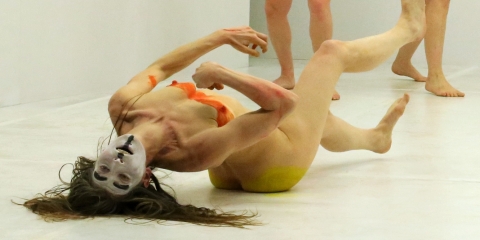Saison Sèche
I.C.E.Saison Sèche

Born in blood and contractions.
A light at the end of the tunnel.
Strange hands seize you.
Cross the threshold into oxygen.
Breathe ! Exhale !
Forget.
How many times have you held your breath.
Your skin is not everything and yet it names you.
Your colour.
Your sex.
Your voice.
Everything differs.
You feel you should be what they say you should be.
What can you do ?
Create yourself a virginity in the midst of the soiled mess.
If you identify with the ravaged ones, have you broken the deadlock ?
So I will start here !
You and I : this is a public sphere and occasionally a private sphere. You know I like to question « your » audiences, regarding who they are and what they expect from a show. It’s the œuvre – the work – the trace it leaves and how this haunts our bodies and our conversations, which interests me. I hate the sacralization of artists, there is no worse society than that of self-importance. As a spectator, I have seen shows and performers which have shaken me to the bone with their honesty, their lucidity, their pertinence and their truth, filling me with joy. The more I go to the theatre, the more I want to be ripped from reality and from the stink of this world. Either that or I want the theatre to enhance the world and make it sublime !
I suffer (like you perhaps) from not knowing how on earth to hope for a peaceful future. In the public sphere, we put on a brave face, but in private we let ourselves go and come crashing down. The more religions, moralists and their brown plague intefere in our lives, the more I yearn for a pack of extraterrestrials to show up, like in « Close Encounters of the 3rd Kind », to carry them all off to distant galaxies… Damn ! That would make me so happy !… and while the extra-terrestrials were there, we could offer them one or two politicians, stockholders and bosses as an added bonus, to squeeze into the bottom of their flying saucer.
Don’t worry, I’m fine, it’s just my method of coping with things. Rather than bursting into tears whilst watching images of the consequences of liberal policies and austerity measures applied and sold to us by our beautiful country without envisaging any alternative options, I imagine H.G.Wells type scenarios and there you go ! Good riddance !
During the terrorist attacks in Paris on the 13th of November 2015, our friends were seriously wounded. My partner and I were on our way to meet up with them. By pure chance we were late. We were at the 104 Culturel Centre to see a show by Aurélien Bory and we stayed after the show for the discussion with the audience. As we left the theatre, we received a phone call from our friends who had just been shot at. Panic, incomprehension, and then that terrible night spent at the Bichat hospital in the operating block corridors, watching an accumulation of « bloody stretchers ». Have you ever smelled the odour of fresh blood ? Blood spilt with bullets ? It’s a strange mixture of powder and blood. Yes, our friend had been hit by two bullets which confined him to a hospital bed for months and left him handicapped forever. A Brazilian, who never imagined it would be in France that he got hit by bulletts, rather than in a fight between drug traffickers and the police in a Rio de Janeiro favela !
His bullets were « made in France ».
French moral values are going down the drain. And as long as we keep selling arms and bombs, they will keep going down the drain. I don’t believe that we theatre people will be able to change this situation, aside from managing to convince the arms factory workers to question the role they play in this generalised homicide. We need to read Hannah Arend over and over again. And we need to face up to the fact that when we remain silent on the subject, we too are responsible for the bloodshed.
Rather than reading the freebie propaganda (owned by the greedy Bolloré Group and cronies) which is distributed every morning on the Parisian public transport system, I really wish we would all read poetry and philosophy.
And yet we don’t. But we owe it to ourselves and to everyone around us, to do our utmost to engage in clear, critical thought and reflection.
We need simple rituals, not flashy commercial events ! I dream of acts, of words, of movements which make us tremble and quake, instead of diplomas, prizes and mediatised stars.
Phia Ménard,
September 2016.
«When I started working, I put a lot of emphasis on gender as if it were a sort of law, and I still think that there are certain actions which, when repeated over time, can create and confirm gender identity. But gender is also a category of analysis through which we can consider essential political concepts such as the distinction between public/private, the public sphere and equality. When we say these political concepts have a gender, we’re saying that they have been established from certain gender hypotheses. But gender is also something which we endure, a part of our development. This seems obvious when we think of the way gender is assigned to us not just once, but every single day, in the street, in public institutions, at the heart of medical and legal establishments . » Judith Butler, philosopher, in an interview with the French newspaper « L’Humanité », 14th January 2014, talking about her book « Gender Trouble ».
I need flesh, sweat and sincerity. And you ?
Being yourself in a normative society is an ordeal which is oh so risky, as each fragment of our gestures seem to be under control.
We have broken through walls only to find ourselves in front of new ones. We still find ourselves in roles, those of the woman and the man, models in the grip of their ingurgitated urges. Our bodies are permeated with taught habits. How many times have you asked yourself : where does that gesture come from ? From me ? Have I inherited it from my father, or my mother, or just from social mimicry?
We don’t « un-learn » : our memory betrays us, it refuses to let us forget what we dislike about ourselves.
That itching feeling finally gets to us the day we face up to our image, immobile, poised, and waiting.
The trembling you feel is quite normal. Your pulse races. The mirror yields to the pressure, new dimensions appear. Extricating yourself from the well-trodden path doesn’t happen just like that. You hesitate. Dive in while your mind is spinning, take that dizzying leap and vomit the agony and torment of all those moments when you pretended to be indifferent. Gender allocation is an obsolescence we would like to know how to « de-program ».
We need to know how to be reborn. Even if this involves more blood : the blood of the fighter, because apparently only a warrior’s blood is worth anything.
It’s a hunting expedition against ourselves. The prey becomes a predator who rejects itself.
The Dry Season is approaching and the ground trembles. Or maybe it’s just the flickering light.
Which part of ourselves will fall to pieces, beneath our feet ?
« We have been used as guinea pigs in a gigantic experiment and the entire world would now like to know how we will survive. »
In the beginning…
While I was writing « Yesterday’s Beauty » (« Belle d’Hier »), I found myself face to face with the immense, technical requirements of the piece and I realised that it would not be possible to treat such a complex theme as gender assignation from a social and a sexual point of view in one go.
With « Yesterday’s Beauty », I imagined the collapse of this societal construction, represented by frozen bodies violently washed and scrubbed using slaughterhouse methods. An epic saga fluctuating between our modern world and Antiquity : cleaning up Humanity !
Images of the Tchernobyl nuclear power station accident remain fixed in my memory from my adolescence. I also remember feeling like I had lived the accident in my body, despite the geographical distance and in spite of the French government’s lies, broadcast by their spokesman of the time : professor Pellerin. There’s no doubt it is this memory which incited me to create the first nightmarish scene in « Yesterday’s Beauty » (« Belle d’Hier »). The recumbent statues are the irradiated people, manipulated by the « liquidators » in radiation suits. Radiation and the Patriarchy have two points in common : their invisibility and their long-term effects. The decontamination is represented by the long, gruelling task of washing, scrubbing, wringing, pounding the laundry ; a controlled race where the washerwomen physically push themselves to their limit.
With the cave scene, shrouded in the mist, I wanted to evoke both hell and the return to our origins, leaving the spectator free to interpret the scene as he/she wishes.
Jean-Luc Beaujault, the piece’s co-author, and myself, first had the idea of tackling the theme using two very different approaches, during the run-up to the first performances. We were nowhere near mastering the frozen material in the shape of sombre saviours. So we decided to put aside one of our experimental forms as it seemed like it should be a seperate form, a second movement in our epic.
« Dry Season » (« Saison Sèche »), the name of this ritual, is a messianic form for the subversion of codes.
The Form
We rediscover the same five women in a virginal, lifeless, white space : an imposed virginity, a sort of morgue, a place where all kinds of moods, movements, cries, and evils are to be exorcised and forgotten. Here, the supplications are a language, a game and a way of sharing the need to « undo » one’s condition.
The tension rises to the surface as the performers dance and leap, flinging their dresses and finery, battling against the edifice of « what is normal ». As is the case with many of our actions, here the sacred is not religious ; it is a spiritual invention dreamt up by a circle of humans imagining a dialogue with an invisible Power.
Inspired by illustrations of tribal rituals such as « Les maîtres fous » by Jean Rouch, by moralistic literature on the female body and the family, and by the listing of our traditions, we are developing a performative form which plays with codes and everyday gestures until we hit trance mode.
Getting rid of our attributes. Throwing out the family jewels.
I see this new piece as a ritualisation of the struggle against an invisible force, as a way of pulling out of didacticism.
In this new form, the untameable matter is the space. A deep quake cracks the walls and bits of the structure come tumbling down, until the whole building collapses.
But is it an earthquake or a divine reaction to our dance ?
An unstable, shifting scenography
Since I began questioning notions of transformation between the body and living matter, the question of which untameable element will feed and nourish my writing is at the heart of my thoughts.
With « Dry Season » (« Saison Sèche »), I want to work on undulation, a phenomenon which seems to me to be linked to ritual. So I decided to work on phenomena involving quakes, tremors, earth, ground, walls, ceilings, light oscillation and sound vibration, and ultimately the transformation of solids into softness, culminating in the rupture of matter. I want to create a relationship between these terrestrial phenomena and the scenography.
It was whilst touring shows in volcanic regions, noteably in Réunion Island and Indonesia, that I began to observe the moving mineral matter of volcanos and earthquakes, with both fascination and fear. Of course, I would not be able to reproduce such an event onstage, but I wanted to evoke the tense anticipation and the fear provoked by these invisible phenomena.
Our stage space will be a box composed of four walls and a ceiling, a reasonably light structure made of thick corrogated cardboard. The structure will be coated in a layer of white clay which cracks when subjected to mechanical tremors and the injection of coloured water. The layer of clay softens and dissolves, peeling off the walls and the ceiling, slowly disintegrating them and eventually bringing them down.
The light, resistant matter of the walls and ceiling becomes soft when humidified and rips easily.
Like in the piece « P.P.P. » where balls of ice were suspended above my head, I am not aiming to create anything sensational nor dangerous, just the possibility of forging a compassionate tension between the spectators and the performers.
As applies to all our creations, at the moment of writing this presentation, our technical team is working on finding the cheapest, most practical way of creating the set.
The Creation Team
Composition and dramaturgy: Phia Ménard and Jean-Luc Beaujault
Scenography/stage design: Phia Ménard
Cast (creation and performance): Marion Blondeau, Anna Gaïotti, Elise Legros, Phia Ménard, Marlène Rostaing, Santana Susnja, Jeanne Vallauri, Amandine Vandroth
Marion Parpirolles was part of the « Saison Sèche » show team as a performer until April 2nd, 2021, the date of her death.
Soundtrack composition: Ivan Roussel
Sound master alternately: Ivan Roussel, Mateo Provost
Lighting design: Laïs Foulc
lighting engineer: Olivier Tessier
Technical direction of creation: Benoît Desnos
Stagehands alternately: Benoît Desnos, Mateo Provost, Rodolphe Thibaud, Ludovic Losquin
Costumes and props: Fabrice Ilia Leroy
Set construction and props: Philippe Ragot
Photographs: Jean-Luc Beaujault
Co-director, administration and production: Claire Massonnet
Technical direction: Olivier Gicquiaud
Production and administration assistant: Constance Winckler
Communication: Justine Lasserrade
Production : Compagnie Non Nova.
Co-production : Espace Malraux, Scène Nationale de Chambéry et de la Savoie, other partners currently in the decision-making process.
Non Nova is subsidised by the French Ministry of Culture and Communication – DRAC des Pays de la Loire, Nantes City Council, the Conseil Régional des Pays de la Loire, the Conseil Départemental de Loire-Atlantique, the Institut Français (France’s international cultural relations body) and the BNP Paribas Foundation.
The company is based in Nantes.
The company Non Nova / Phia Ménard is currently associated artist at Malraux scène nationale Chambery Savoie and at the « Théâtre National de Bretagne » in Rennes










